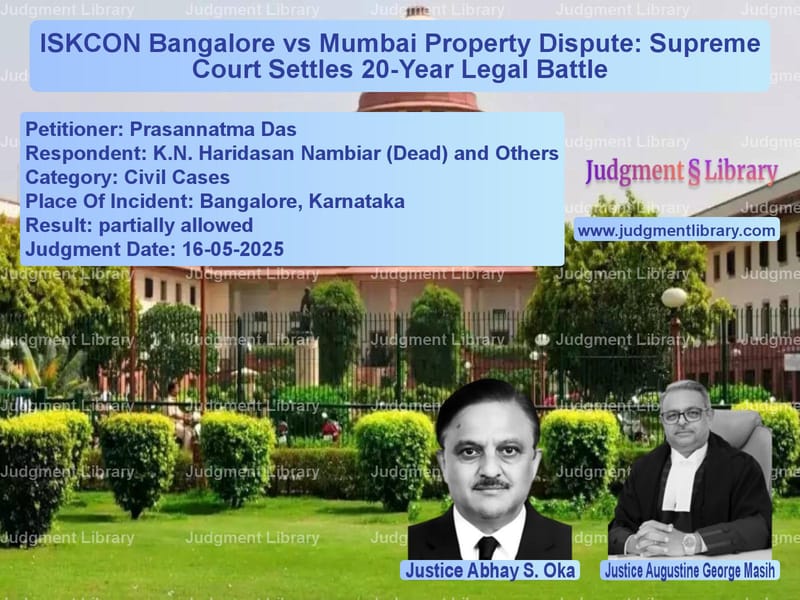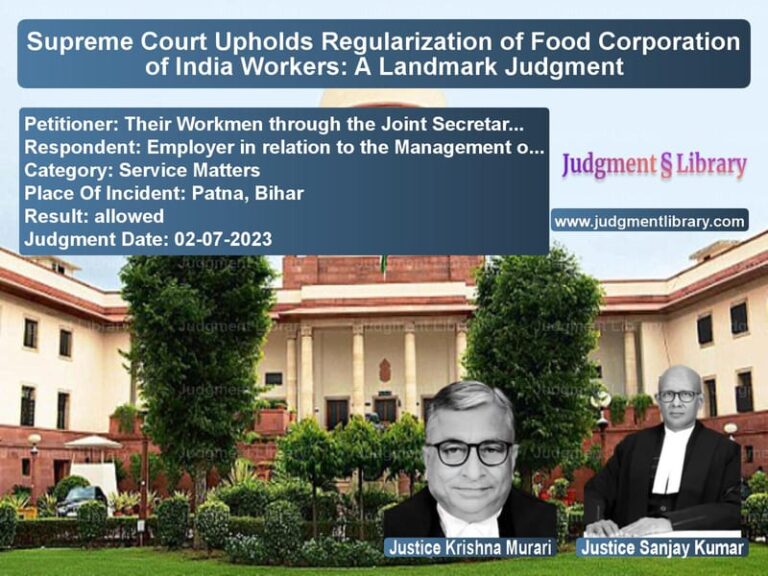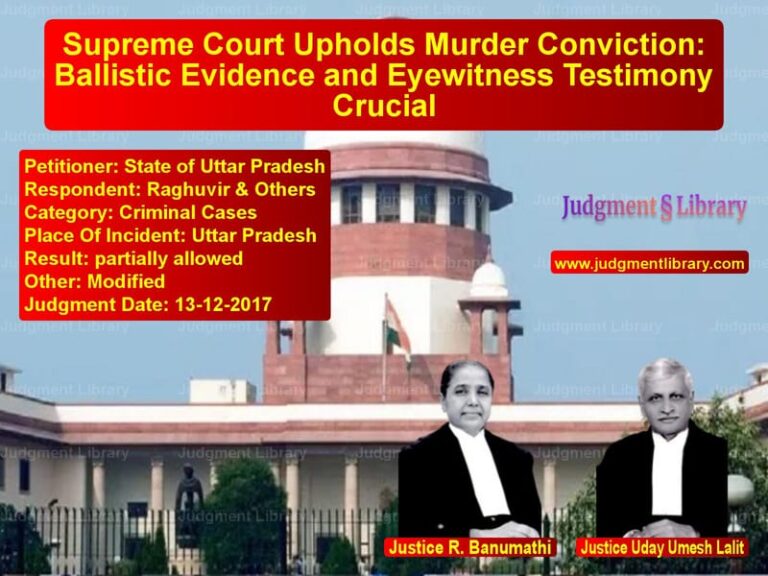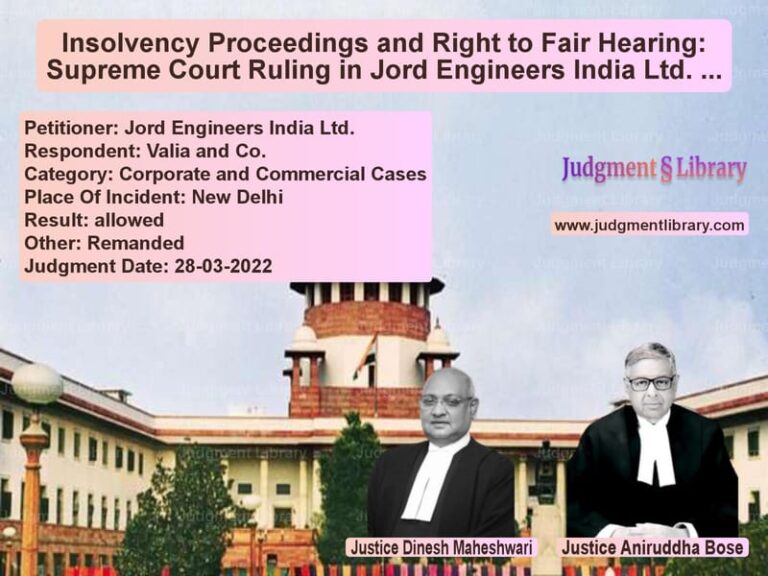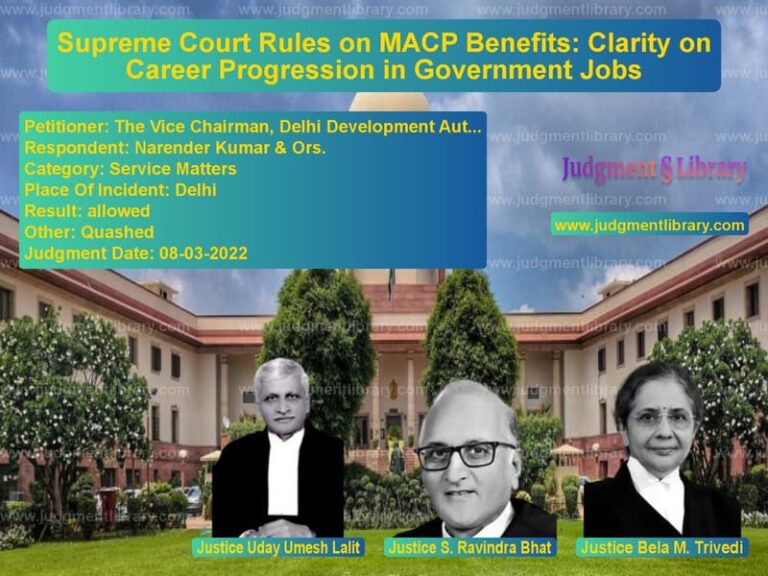ISKCON Bangalore vs Mumbai Property Dispute: Supreme Court Settles 20-Year Legal Battle
In a landmark judgment that brings closure to a two-decade-long legal battle, the Supreme Court of India has delivered a decisive verdict in the complex property dispute between two factions of the International Society for Krishna Consciousness (ISKCON). The case involved multiple civil appeals concerning the ownership and management of valuable temple properties in Bangalore, pitting ISKCON Mumbai against ISKCON Bangalore in a protracted legal struggle that tested the boundaries of society registration laws and property rights.
The dispute centered around two main lawsuits – Suit No. 1758 of 2003 concerning the management control of ISKCON Bangalore, and Suit No. 7934 of 2001 dealing with the ownership of substantial properties including a 6-acre 8-gunta land in Rajajinagar Extension, Bangalore. The legal battle saw numerous twists and turns across different judicial forums, with both sides presenting extensive documentary evidence and witness testimonies to support their claims.
The Core Legal Disputes
The Supreme Court was confronted with two primary legal questions that had kept the litigation alive for over twenty years. The first issue revolved around whether the property mentioned in Schedule ‘A’ of Suit No. 7934 of 2001 was allotted by the Bangalore Development Authority (BDA) to ISKCON Mumbai through its branch in Bangalore or to ISKCON Bangalore. The second issue concerned the validity of the governing body elections of ISKCON Bangalore and whether the 11th to 17th defendants had legitimate authority to manage the society.
Justice Abhay S. Oka, writing the judgment for the bench, noted the extraordinary duration of the litigation with evident concern. “According to the available records, Late Bhaktivedanta Swami Prabhupada initiated the Hare Krishna movement. Looking to the case made out regarding the object of the said movement, in fact, the dispute between ISKCON Mumbai and ISKCON Bangalore ought not to have been brought to the Court. However, they have done so, and in the process, they have litigated for a span of more than 20 years.”
The Property Ownership Battle
The most significant aspect of the case involved the ownership of the prime Bangalore property where the ISKCON temple stands. ISKCON Bangalore claimed absolute ownership based on the registered sale deed dated 3rd August 1988 executed by BDA in its favor. The society argued that the application for allotment dated 5th February 1987 was specifically made by ISKCON Bangalore, which was registered under the Karnataka Societies Registration Act.
The appellant’s counsel argued vigorously that “the title of the Schedule ‘A’ property, by virtue of the sale deed, passed on to ISKCON Bangalore.” He emphasized that “even the telephone number mentioned on the allotment application dated 5th February 1987 belongs to ISKCON Bangalore. Even the address in the sale deed is that of ISKCON Bangalore.”
ISKCON Mumbai, however, contended that the Bangalore temple was always a branch of ISKCON Mumbai and that Madhu Pandit, who signed the application documents, was acting as the President of the Bangalore branch of ISKCON Mumbai. The respondent’s senior counsel argued that “ISKCON Bangalore, registered under the Karnataka Societies Registration Act, was always a defunct society.” He pointed out that “82 out of 110 documents produced by ISKCON Bangalore are authored or signed by Madhu Pandit.”
The Supreme Court’s Analysis
The Court conducted a meticulous examination of the documentary evidence, particularly focusing on the application process for the Bangalore property. Justice Oka observed that “the application dated 5th February 1987 at Exh.P-51 is crystal clear that the application was made by ISKCON Bangalore, as in the first paragraph itself, it is claimed that the applicant, International Society for Krishna Consciousness, has been registered under the Karnataka Societies Registration Act, and its registration number (49/78-79) is also mentioned.”
The judgment highlighted that “all the documents, from the application for allotment to the grant of exemption under the Urban Land Ceiling Act, indicate that the application for allotment was made on behalf of ISKCON Bangalore and that allotment was made to the said Society.” The Court found no evidence supporting ISKCON Mumbai’s claim that the property was allotted to them through their Bangalore branch.
Addressing the legal requirements under the Bangalore Development Authority Act, the Court noted that “In view of clause (v) of Section 38B, an application was made by ISKCON Bangalore for allotment.” The judgment emphasized that “If the application for allotment was made on behalf of ISKCON Mumbai, the pleading would have been that it is a charitable Trust which will be covered by clause (vi) of Section 38 B.”
Management Control Dispute
In the parallel suit concerning the management of ISKCON Bangalore, the Supreme Court upheld the concurrent findings of the Trial Court and High Court. The dispute centered around whether a General Body Meeting was held on 1st July 1984 where the current management was elected.
The Court noted that “the plaintiffs have adduced no evidence to prove their case. Both the Courts have accepted the case of the 11th to 17th defendants, who claim that they were elected in the July 1984 meeting.” The judgment observed that “as the first two plaintiffs withdrew from the suit, their evidence ceased to be of any significance.”
The appellant had argued that “the 11th to 17th defendants have no right to manage or control ISKCON Bangalore” and that various documents showed discrepancies. However, the Court found that “after having perused the pleadings and evidence on record, we find no error in the view taken by the Trial Court as well as the High Court.”
Final Ruling and Directions
In its conclusive ruling, the Supreme Court allowed Civil Appeal No. 9313 of 2014 filed by ISKCON Bangalore, setting aside the High Court’s judgment and restoring the Trial Court’s decree that recognized ISKCON Bangalore as the absolute owner of the scheduled properties. The Court held that “the High Court’s finding that ISKCON Mumbai, through its branch in Bangalore, was the owner of the schedule A property is completely erroneous and deserves to be set aside. It is completely contrary to the documentary evidence.”
However, the Court dismissed Civil Appeal Nos. 3821-3822 of 2023, thereby upholding the management rights of the 11th to 17th defendants over ISKCON Bangalore. The judgment also dissolved the oversight committee headed by former Justice R.V. Raveendran that had been managing the temple affairs during the pendency of litigation.
The Supreme Court’s judgment brings finality to a dispute that has consumed substantial judicial resources over two decades. While resolving the legal questions definitively, the Court expressed its disappointment that “the dispute between ISKCON Mumbai and ISKCON Bangalore ought not to have been brought to the Court” given the spiritual objectives of the Hare Krishna movement initiated by Bhaktivedanta Swami Prabhupada.
The ruling establishes important precedents regarding property rights of registered societies and the significance of documentary evidence in determining ownership claims. It also underscores the judiciary’s role in bringing closure to protracted legal battles, even while expressing regret that spiritual organizations had to resort to prolonged litigation to resolve their differences.
Petitioner Name: Prasannatma Das.Respondent Name: K.N. Haridasan Nambiar (Dead) and Others.Judgment By: Justice Abhay S. Oka, Justice Augustine George Masih.Place Of Incident: Bangalore, Karnataka.Judgment Date: 16-05-2025.Result: partially allowed.
Don’t miss out on the full details! Download the complete judgment in PDF format below and gain valuable insights instantly!
Download Judgment: prasannatma-das-vs-k.n.-haridasan-nambi-supreme-court-of-india-judgment-dated-16-05-2025.pdf
Directly Download Judgment: Directly download this Judgment
See all petitions in Property Disputes
See all petitions in Contract Disputes
See all petitions in Judgment by Abhay S. Oka
See all petitions in Judgment by Augustine George Masih
See all petitions in partially allowed
See all petitions in supreme court of India judgments May 2025
See all petitions in 2025 judgments
See all posts in Civil Cases Category
See all allowed petitions in Civil Cases Category
See all Dismissed petitions in Civil Cases Category
See all partially allowed petitions in Civil Cases Category

